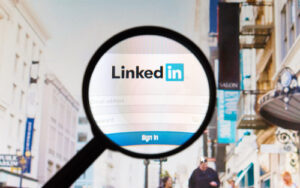
Fake news has inundated social networking sites and the information of people on social media platforms is often outright false or inaccurate. Even LinkedIn, the business and employment oriented network, is now facing problems related to fake profiles and spam.
How to report fake profiles on LinkedIn
LinkedIn, which is a powerful professional networking platform, has started filling up with fake profiles. Even network connections that seem real might be fake, which is why it is a good idea to connect only people who you know about. Fake LinkedIn profiles are often believable because scammers piece together information gleaned from other profiles with reasonable pictures and details to make the accounts look more legitimate.
Connecting with a fake or spam profile on LinkedIn can give the person who controls that fake profile access to your personal data such as your education details, place of work, phone number, and email. LinkedIn also allows your network connections to see detailed information about your professional contacts, which can be further used to make fake accounts and spam other users.
To address this problem, the networking site has a page for reporting fake accounts. Here’s the link for it. On the page, you can report inaccurate Information on another member’s profile. Using the same link, you can report fake accounts, hacked profiles, and scams. You will be asked to complete a form, which you can save a copy of for your reference, and which is sent to the Trust and Safety team of LinkedIn for review. On the other side of the coin, you can submit a Counter-Notice if you think that a claim was submitted in error.
Here’s how you can spot fake profiles on LinkedIn
Some fake profiles are not as well done as others, and leave clues as to their fake nature. For example, some will have presentation errors, like displaying the first name in all capital letters. On a professional network, this would be quite unusual for a real profile. Other anomalies include spelling mistakes, grammar mistakes, typos in the profile, etc. Of course, these things can happen on real profiles as well, so they are not dispositive!
LendEDU – a student and personal loan marketplace – did a research study on LinkedIn users which asked them if they ever lied on the network. More than one third (34%) of the respondents said that they lie to some degree in their LinkedIn profiles. Over 55% of these respondents said that their biggest lie on the platform was their ‘skills’, while almost 11% said that their profile is a complete farce.
Fortunately, most people reported still being honest about their LinkedIn profiles, particularly their work experiences. Even recognizing the limitations of one study and the possibility that the real numbers might vary, we cannot ignore that misleading profiles on LinkedIn is a big problem that needs to be addressed.





